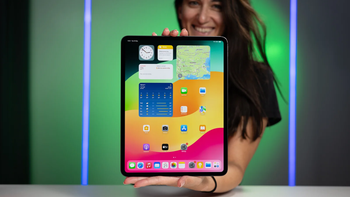Google will collect no fees from Android Pay transactions

While Android Pay and Apple Pay may be near-identical reflections of each other in terms of primary function, one big differentiator that may give Google’s new mobile payment solution an edge is, of course, related to money.
When Apple introduced Apple Pay last year, there was an understandable arrival of banks to be part of the picture, after all, Apple may not always be the first on the scene with a feature, but it generally executes well much of the time (Apple Maps notwithstanding).
That gave Apple a bit of leverage over the financial institutions, and they were all too eager to let Apple take a piece of the razor thin slice of fees collected every time we buy something with a credit or debit card.
For credit card transactions, Apple gets 0.15% of the value of the transaction, and for debit card based purchases, it is a full 0.5%. Those numbers do not look very big, but in terms of card-based transaction fees, they are big money. If we take even a modest estimate of potential Apple Pay users, the revenue figures are surely nothing to sneeze at. Expect some type of Apple Pay statistic announcement during WWDC this coming week.
Android Pay, however, will collect no such share of the transaction fees. That is thanks, in part, to Visa and MasterCard opening up their standardized tokenization security features, making them free. Tokenization is a method that swaps card and transaction data with unique sets of numbers that validate the purchase.
The merchants never get the card data, and no directly sensitive information is transmitted, ostensibly eliminating, or severely curtailing, the risk of online theft.
Since Visa and MasterCard rule the credit and debit card transaction landscape, some think this will force Apple to negotiate terms again if Apple Pay is to remain a visible payment option after current agreements are up for renewal in a couple years.
source: The Wall Street Journal
For credit card transactions, Apple gets 0.15% of the value of the transaction, and for debit card based purchases, it is a full 0.5%. Those numbers do not look very big, but in terms of card-based transaction fees, they are big money. If we take even a modest estimate of potential Apple Pay users, the revenue figures are surely nothing to sneeze at. Expect some type of Apple Pay statistic announcement during WWDC this coming week.
The merchants never get the card data, and no directly sensitive information is transmitted, ostensibly eliminating, or severely curtailing, the risk of online theft.
Since Visa and MasterCard rule the credit and debit card transaction landscape, some think this will force Apple to negotiate terms again if Apple Pay is to remain a visible payment option after current agreements are up for renewal in a couple years.
The no-fee arrangement with Google was not necessarily by choice, no business likes to leave money on the table, but the new tokenization rules left Android Pay with no leverage to negotiate any kind of fees. However, this may prove to work to Google’s advantage when it pushes for wider acceptance of Android Pay as it expands to other markets.
source: The Wall Street Journal
Follow us on Google News













Things that are NOT allowed:
To help keep our community safe and free from spam, we apply temporary limits to newly created accounts: